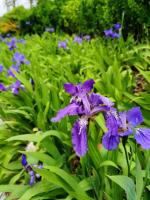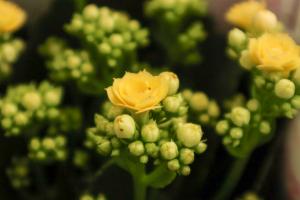Can Boiling Water Kill Plants?
Boiling water is usually used for making tea, coffee or preparing food. However, some people believe that boiling water can be used as a powerful herbicide to kill plants. But, is this really true? In this article, we will explore the effects of boiling water on plants.
The Science of Boiling Water on Plants
When boiling water is poured onto plants, it can cause damage in a few different ways. Firstly, the heat itself can scorch the leaves, stems, and flowers of the plant, which can lead to discoloration, wilting, and in severe cases, death. Secondly, the hot water can cause the plant cells to rupture, especially if the water is poured on the roots, leading to dehydration and the plant's eventual death.
When Boiling Water Can Be Used to Kill Plants
Boiling water can be effective in killing some plants, but it depends on the type of plant and the stage of growth. For example, small plants with shallow roots are more likely to be killed by boiling water compared to established plants with deep roots. Also, young seedlings are more vulnerable to the heat than mature plants. Weeds, in particular, are vulnerable to boiling water, as their shallow root systems and fast growth rates make them prime targets for herbicides.
The Risks of Using Boiling Water on Plants
While boiling water may seem like a quick and easy solution to weed problems, there are some risks associated with this method. Pouring boiling water on plants can cause burns, both to the person doing the pouring and to any nearby people or animals. Additionally, boiling water can strip the soil of nutrients, making it difficult for plants to grow back in the affected area. Finally, the hot water can contribute to erosion, which can lead to soil degradation and other environmental problems.
Safer Alternatives to Boiling Water
If you're looking for a way to control weeds or eliminate unwanted plants, there are several safer alternatives to boiling water. One is to use an organic herbicide, such as a vinegar spray or a mixture of salt and water. These alternatives are safer for the environment and don't carry the risks of burns or soil damage. Hand weeding is also an effective and environmentally friendly way to control weeds, especially for those with smaller gardens or lawns.
Conclusion
In summary, boiling water can indeed kill plants, but it's important to consider the type of plant, the stage of growth, and the risks associated with this method. While boiling water can be an effective way to control weeds, it carries risks for both people and the environment. If you're looking for a safer alternative, there are many organic herbicides and manual weeding methods available that can effectively control plants without the risks of boiling water.

 how many times do yo...
how many times do yo... how many planted tre...
how many planted tre... how many pine trees ...
how many pine trees ... how many pecan trees...
how many pecan trees... how many plants comp...
how many plants comp... how many plants can ...
how many plants can ... how many plants and ...
how many plants and ... how many pepper plan...
how many pepper plan...
































